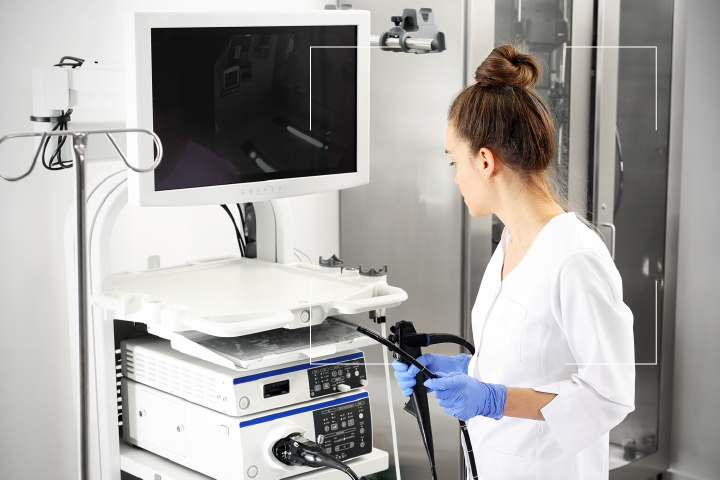9 Mar 2022
A Doctor’s Visit That Could Save Your Life
Estimated read time: 4 minutes
In August 2020, news broke of the death of actor Chadwick Boseman, known for his role as Marvel’s Black Panther, at the age of 43 from colon cancer. Suddenly, the prevention and early detection of this illness — concerns that had long been on the minds of healthcare providers — entered the mainstream conversation.
The numbers speak for themselves. Colon or colorectal cancer is the fourth most common type of cancer in Latin America and the Caribbean, with more than 128,000 diagnoses in 2018. In the United States alone, 106,000 new cases and 44,850 deaths from the disease are projected for 2022.
In the Latin American region, colon cancer incidence levels in Argentina, Uruguay, and Brazil are similar to those in the US and Canada. In Mexico, the illness is the leading cause of cancer death.
Men have one to two times higher colorectal cancer rates than women.
Why Symptoms Matter
As is the case with numerous conditions, the early symptoms of colon cancer might resemble those of many common illnesses. They can include persistent abdominal discomfort, a feeling of fullness, gas, weakness, and fatigue, all easily attributed to an indulgent meal or even daily stress. These symptoms, however, are a sign for you to schedule a doctor’s appointment.
At What Age Should You Get a Colonoscopy?
Colonoscopies are a critical tool for early detection.
In the US, health organizations are now in agreement that individuals should get their first colonoscopy at the age of 45 (it was previously 50), but if a patient has a family history of this type of cancer, a doctor could request one earlier. That could also be the case if a person suffers from inflammatory bowel disease, such as ulcerative colitis or Crohn’s.

If so, colonoscopies could be performed every one to two years.
Patients with genetic risk factors should also begin screenings before their 45th birthdays. Five percent of people who develop colon cancer are found to have inherited gene mutations that cause hereditary syndromes which in turn lead to the development of this type of cancer. Among the most common is Lynch syndrome, also known as hereditary non-polyposis colorectal cancer.
Although genes can play a determining role in the onset of colon cancer in young adults, scientists are still researching the causes for the appearance of this disease at a young age.
A lack of access to these tests is precisely the reason why a high percentage of colon cancer diagnoses in the region are made when the disease is already at an advanced stage, making it harder to treat. And even with successful treatment, a late diagnosis can lead to cancer recurrence, the term for the return of malignant cells.
Prevention Levels
Experts agree that colon cancer is highly preventable. The key lies in a series of actions involving the healthcare system, individuals, and our collective society. Colon cancer prevention strategies are divided into three levels:
- Primary prevention strategies. These include public policies and individual behavior changes that support healthy dietary habits, regular physical activity, keeping a healthy body weight, and not smoking or drinking alcohol. These factors are also critical to the prevention of other noncommunicable diseases.
- Secondary prevention strategies: They involve the early detection of colorectal polyps. This can be achieved by having regular colonoscopies, scheduled more or less frequently based on factors such as the presence of polyps and the level of risk determined by a healthcare provider.
During this procedure, a doctor will examine the colon in its entirety using a colonoscope, a flexible tube with a small camera and a light at the end. For the exam to be successful, the colon must be completely empty so the doctor can clearly observe the colon lining.
Colon cancer begins when healthy cells in the innermost lining of the colon (the final section of the large intestine) or the rectum grow out of control and form a mass known as a tumor. This cancer starts out as polyps, benign growths that can develop on the inner lining of the colon or rectum. The removal of these polyps can stop them from becoming cancerous.
Other screenings methods include checking stool samples for hidden blood and performing fecal immunochemical tests that look for signs of colon cancer in stools.
Recent studies have found that fecal blood tests, which can be prescribed by a doctor and performed at home, are associated with higher rates of detection. - Tertiary prevention strategies. They encompass the treatment of invasive colon cancer, based on its stage, and involve surgery, chemotherapy, and sometimes radiation. When colon cancer is detected in an early stage, survival rates are generally higher than 90%. But if the illness is diagnosed in a later stage, the likelihood of survival is considerably lower.
Most countries in Latin America and the Caribbean offer guides to colon cancer screenings, but access to such tests is often limited due to factors such as lack of healthcare coverage, funding, and inadequate infrastructure. Argentina and Uruguay have national programs in place for the detection of colon cancer.
If individuals understand the importance of screenings and medical visits as well as the role of a healthy diet (eating red and processed meats, for example, is a major risk factor), it may be possible to curb the risk of colon cancer and prevent the deaths of its increasingly younger victims.
Remember, always consult with your physician to determine the best options for your body and health and to answer any questions you may have regarding any medical matter.


